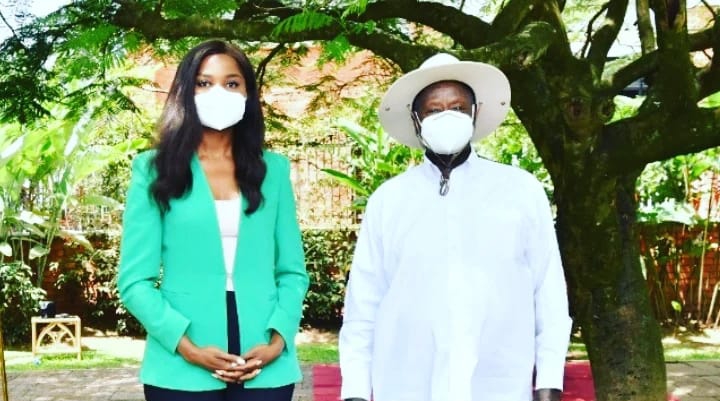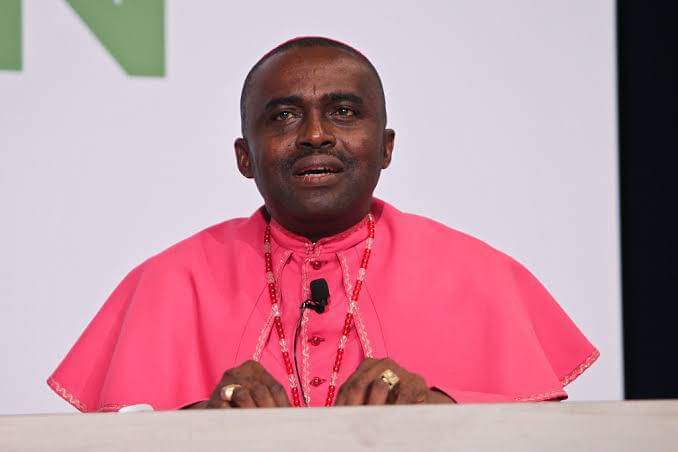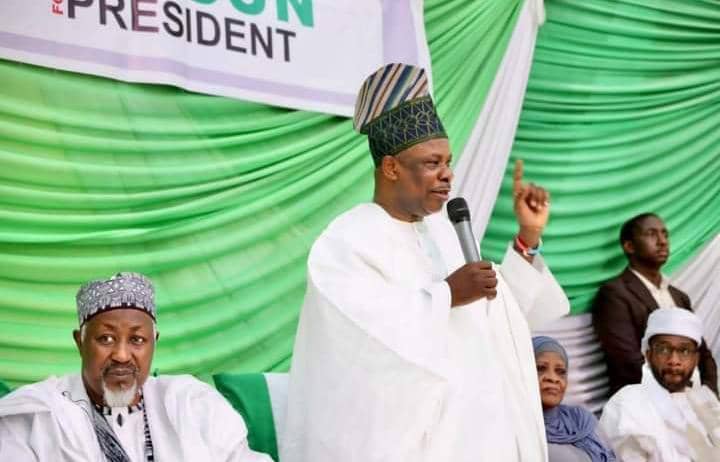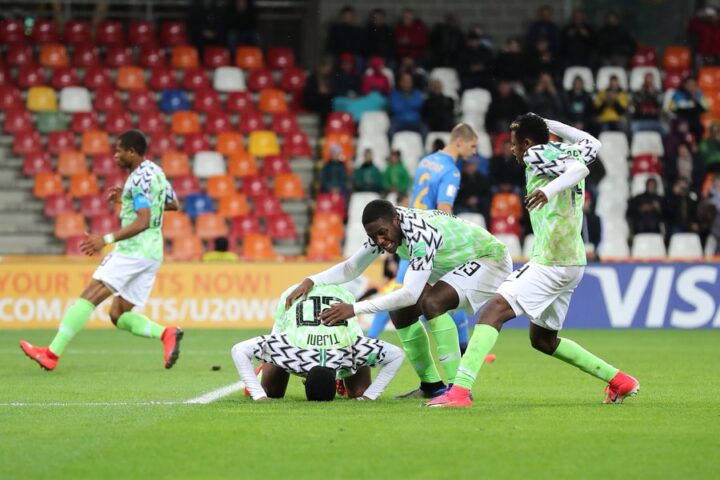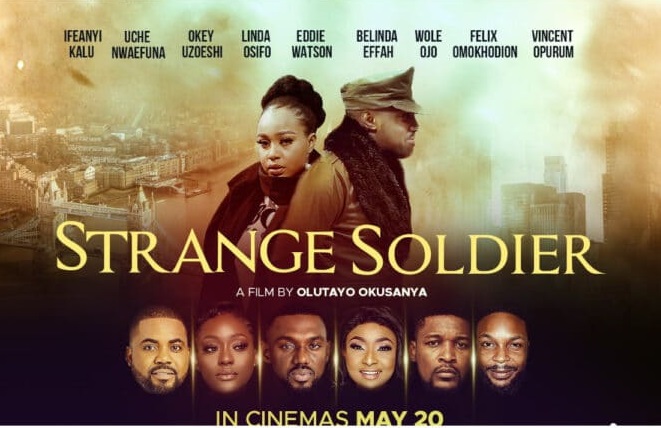Getting Ugandan President Yoweri Museveni to grant a media interview could be a hard task. The former guerrilla fighter stays wary at all times, never letting off his guard. The fact that some interviews he granted in the past turned out to be interrogations has made him even warier and where he conceded to interviews at all, ducking questions became his weapon. But the image he has created across Africa and around the world since he mounted the Ugandan saddle 36 years ago after he overthrew president Tito Okello has attracted attention to him, especially in the way he has managed to suppress opposition to remain in power.
It was an ice-breaker of sorts, therefore, when Nigerian-born award-winning foreign correspondent and international broadcaster, Adesewa Josh, broke all the barriers to secure the audience of Museveni, who is reputed as Africa’s third longest-serving president, at the State House in Kampala recently.
“I heard President Museveni’s media team had been watching my show, Africa Matters, and loved our approach of fairness and balance when covering both politics and human interest stories on the continent. So, when the time and opportunity came for an interview, he didn’t need much convincing,” Josh said.
The presenter was well aware of Museveni’s somewhat cold attitude to being interviewed by the foreign media but believed her approach would swing the tough-looking Ugandan leader.
Advertisement
“I reasoned that his attitude is due to how his image has been shaped in the past two decades by a series of what many experts describe as undemocratic policies in Uganda, especially as the local journalists have also appeared unable to check those policies, because they are unable to speak freely, leaving the Western media to thoroughly feast on those stories,” she said.
According to Josh: “I prepared so well ahead of the interview. I watched interviews that President Museveni had done with both local and international networks in the past decade and I realised how well he has mastered the art of defensive commentary, deflection, and denial. It felt like he knew what was coming for him in every interview. So, I adopted a conversational approach, blending the soft style of Oprah Winfrey and the hardstyle of Christiane Amanpour, both of whom I greatly admire, to get the best of him and I was extremely pleased to see him flow well all through.”
On the specific ways in which Museveni reacted during the interview, Josh said nothing was as unexpected.
Advertisement
“I think he walked away from the interview feeling like he gave away more than he normally would. I still asked him all of the questions he was accustomed to from international journalists but in a way that didn’t make him feel defensive as usual. For example, he explained why he keeps running for office in a way that makes anyone want to reason with him, though also wondering why it has to be only him that is most suited for the job.”
Museveni explained his longevity in power as resulting from the revolutionary zeal that barred him from being a bystander in the affairs of his country.
“He really demonstrated a deep commitment to the growth and prosperity of the continent as a pan-Africanist. Perhaps, this explains his intolerance to dissent, freedom of speech and other things for which he is always criticised,” Josh said.
The presenter, who aspires to interview more African leaders, says she would ask the questions in the minds of the people and help them get the answers they deserve.
Advertisement
“In my view, speaking truth to power is one of the hallmarks of good journalism. President Museveni is not the first African president I have interviewed and he won’t be the last. In 2018, my exclusive interview with President Adama Barrow of The Gambia went viral in his country because he publicly admitted he won’t be honoring a campaign promise of stepping down after three years in office, for the first time. Civil society groups and the opposition in the country took to the streets for days to demand explanations, forcing President Barrow to address the issue.
“My mission is to help my fellow Africans speak truth to their governments in the interest of our continent. I reckon many African leaders wish to open up and speak their truth on platforms dedicated to fairness and balance, even if things don’t go their way. In all sincerity, that is what my show, Africa Matters, is positioned to do.”
Josh’s race to reckoning has not been without mountainous challenges which she says with pride that she rode with fortitude.
“It took years of planning, praying, and positioning. I have always wanted to have my own show on an international cable news network, primarily because cable news networks have a wider reach and coverage on and outside the continent. That’s a fact.
Advertisement
Africa Matters began as a segment on TRT World’s flagship News Hour about two years ago. It was designed to offer our viewers across the globe an in-depth analysis of the week’s top stories in Africa. The network’s executives were aware of the importance of covering the continent and they understood they would get the coverage right if only they let the people tell their own stories, which is where I come in.
For so long, Africans were not the tellers of their own stories, which has resulted in skewed nuances and narratives of the continent’s stories. Africa Matters seeks to unburden the pre-existing stereotype of our continent as a destitute, aid guzzling, war-ridden geo-location on the world map by challenging those narratives, presenting facts where fiction has prevailed, and reporting the strides people on the continent are making against all odds, without compromising the truth,” she said.
Yet, covering the whole of Africa would present a gargantuan challenge, as Josh herself concedes: “It requires both capital and talent. My team and I can only be in one location at a time and so we have to rely on a network of talented TV broadcast journalists to get the stories outside of our jurisdiction right. Unfortunately, it can be tough to find freelance journalists, who can write good TV news packages that meet the standards of many international newsrooms. Of course, there are great TV journalists in Africa, but many still need training on how to write and package news stories for international cable networks. I am certain if we increase the number of highly skilled African journalists telling our stories to the international community, we have a chance to challenge the existing odd narratives about Africa and lead a new one that truly reflects the growth and strides that the continent is making.”
Advertisement

